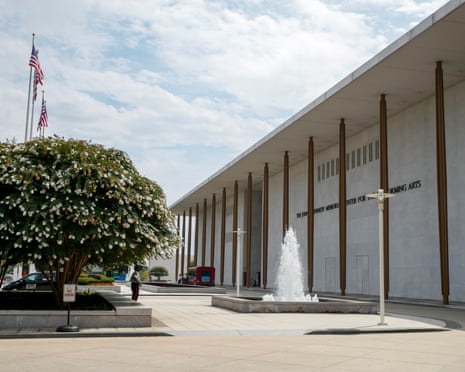CNN Covers Les Misérables Cast Boycott Amid Trump’s Kennedy Center Event
The intersection of politics and the arts was thrust into the national spotlight yet again this week, as CNN and other outlets reported on a growing controversy surrounding Les Misérables. At least ten cast members from the renowned musical plan to boycott an upcoming Kennedy Center performance in Washington, D.C. Their protest centers on the expected attendance of President Donald Trump at the event.

CNN Highlights Tension at Kennedy Center
The news broke after CNN released a detailed segment on the cast's planned boycott. The report not only captured the immediate reactions of key political figures but also underscored the broader cultural rift in the United States.
A House committee had just approved a substantial budget for the Kennedy Center. Yet, the timing of Trump's fundraising event put pressure on performers who did not wish to appear associated with his administration. This story shows how entertainment, politics, and media coverage on networks like CNN can collide, sparking national conversations.
Details of the Les Misérables Boycott
According to The Guardian, at least ten cast members from the current North American tour of Les Misérables exercised their choice to skip the June show. The Kennedy Center's director disputed reports of the boycott. However, the controversy made headlines and fueled further debate on social and traditional media alike.
Some artists cited disagreements with recent changes at the Kennedy Center as a reason for stepping back. Others were wary of lending their presence to a politically charged event. The resulting boycott is not an isolated incident, but part of a pattern. Earlier, other shows had also withdrawn from Kennedy Center programming following shifts in leadership and funding.
The Broader Impact of CNN’s Coverage
News channels like CNN play a key role in shedding light on complex stories at the intersection of culture and politics. Their reporting brings national attention to events that might otherwise remain within arts communities. For example, this situation also attracted Washington Post coverage, illustrating media consensus on the story's importance.
By putting a spotlight on performers' decisions, media outlets help the public understand the stakes. This episode also reminds audiences that arts institutions, such as the Kennedy Center, often reflect the political climate.
Why the CNN Story Resonates
Stories like this resonate because they reveal the power of individual choice and collective values. The Les Misérables boycott aligns with a broader trend of artists taking stands on major issues. As CNN continues its coverage, these discussions will likely broaden and deepen, providing new insights into the ongoing evolution of the arts in America.
Conclusion
The Les Misérables cast boycott at the Kennedy Center illustrates how theater, politics, and media like CNN intersect in modern society. As more details emerge and reactions continue, this story will help shape future conversations about artistic freedom and political expression. For more details and the latest updates, be sure to follow developments on CNN, The Guardian, and the Washington Post.